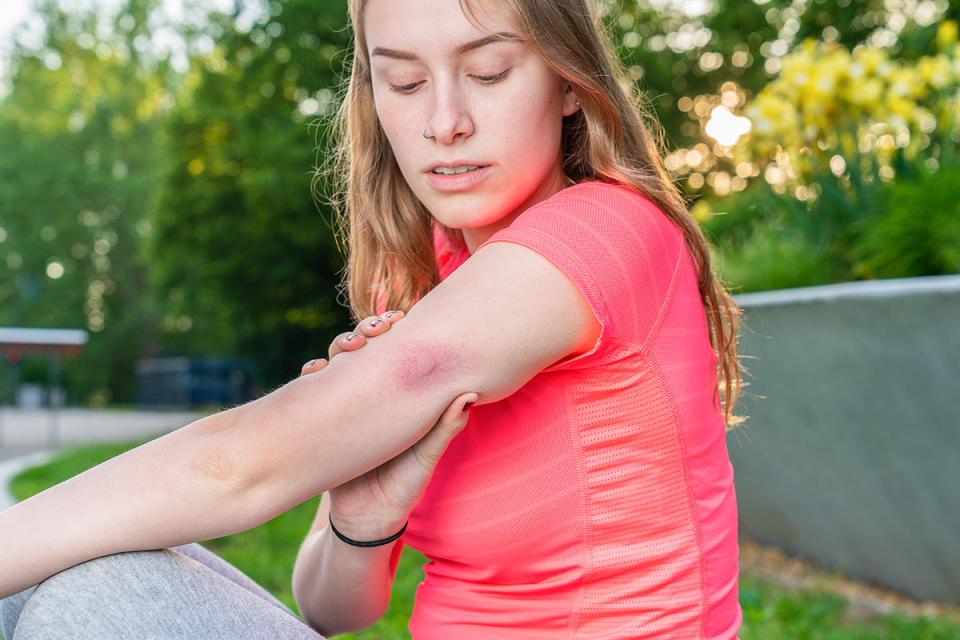
Bites and stings
Insect and spider bites and stings
Bites and stings from insects and spiders can introduce a toxin – a substance produced by the insect or spider injected into the tissue – that increases the risk for complications, including tissue damage.
Toxins can also cause pain, swelling, redness and itching. Initial treatment should include cleaning with soap and water, and applying a cool compress. In some cases, a severe reaction to the toxin can occur. Things to look for include difficulty swallowing or breathing, or blurred vision. If you have any these symptoms, seek medical attention immediately.
Scorpion stings
Scorpion stings are common in the Southwest. When stung, initially, there may be tingling, burning or numbness extending from the site of the sting. While they are rarely life-threatening, you should seek medical attention if your symptoms get worse two to three hours after being stung. Also seek medical attention if you develop a more severe reaction immediately following the sting, such as difficulty swallowing or breathing, or blurred vision. If you are having difficulty swallowing, do not try to swallow pills, food or liquids.
Typically, the pain will be gone in about 24 hours. The numbness and tingling around the area of the sting may last two to three days.
Snake bites
In Arizona, rattlesnake bites are the most concerning. While rarely fatal, if a rattlesnake bite is left untreated, severe medical problems can occur. If you are bitten, seek medical care immediately by calling 911, as the venom will damage tissue and can affect the circulatory system.
Initial symptoms include redness, swelling, numbness and pain, which can progress to weakness, nausea, vomiting, sweating, blurred vision and difficulty breathing. While waiting for medical care, wash the area with soap and water, and remove any objects like rings, watches and tight clothing from the affected limb. If possible, elevate the bitten area above your heart. An emergency department can administer anti-venom shots to help neutralize the snake’s venom.
Risk factors
The age of the person stung or bitten, as well as location are important to consider for the next steps of medical care. If a bite or sting occurs on a person under age 14, or is located on the hands or face, the risk of complications and scarring increases. The person is also at higher risk if they have any medical conditions, including diabetes, liver disease, cancer, HIV, compromised blood flow or are taking any medications that may weaken their immune system.
Animal and human bites can introduce dangerous bacteria into the body that can lead to infection of the soft tissues, bones or joints, especially in the hand where most bites occur. While most bites do not initially appear to be serious by looking at the wound, it is better to seek medical attention to limit further illness or injury.
